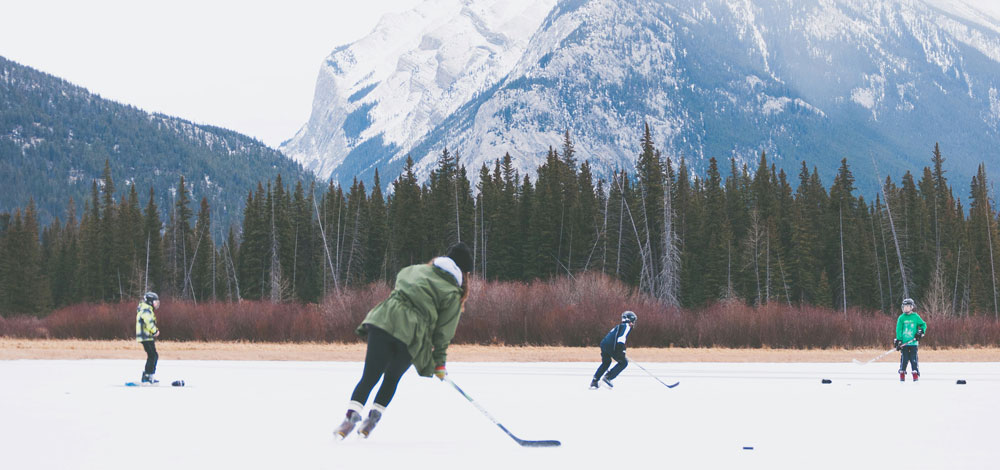Canada is a country rich in history, culture, and natural beauty. From its stunning landscapes to its diverse population, there’s so much to learn about this vast nation.
Whether you’re a Canadian looking to brush up on your knowledge or an international traveler curious about what makes Canada unique, here are 33 fun facts that will enlighten and entertain you!
1. Second Largest Country
Canada is the second-largest country in the world, covering approximately 9.98 million square kilometers (3.85 million square miles). Only Russia is larger. This immense size means Canada boasts a variety of landscapes, climates, and ecosystems—from the rugged Rocky Mountains in the west to the vast boreal forests and tundras in the north.
2. Longest Coastline
With over 243,000 kilometers (151,000 miles) of coastline, Canada has the longest coastline of any country on Earth. This extensive coastline touches three oceans: the Atlantic, Pacific, and Arctic. The coastal regions are home to diverse marine life and breathtaking scenery, making them popular destinations for tourists and nature enthusiasts alike.
3. Official Languages
Canada is officially bilingual, with English and French as its two official languages. This bilingualism reflects the country’s colonial history, as both British and French settlers played significant roles in shaping Canada. In fact, Quebec is predominantly French-speaking, while the rest of Canada primarily speaks English.
4. National Animal
The beaver was designated as Canada’s national animal in 1975 due to its historical significance in the fur trade. The beaver symbolizes hard work and perseverance, traits that many Canadians take pride in. You can find beaver imagery on coins and emblems across the country.
5. Maple Syrup Production
Canada produces about 80% of the world’s maple syrup, primarily from the province of Quebec. The sugar maple tree is tapped for its sap during the spring months when temperatures rise above freezing during the day but drop at night. The sap is boiled down to create delicious maple syrup, a staple in Canadian cuisine.
6. Highest Tides
The Bay of Fundy, located between New Brunswick and Nova Scotia, boasts the highest tides in the world, with a tidal range of up to 16 meters (52 feet). This natural phenomenon occurs due to the unique shape of the bay and its geographic location. Visitors can witness this incredible sight at various points along the coast.
7. Lakes Galore
Canada is home to approximately 2 million lakes, which cover about 9% of its total area—more than any other country in the world! These lakes provide essential habitats for wildlife and recreational opportunities for Canadians and visitors alike. Some famous lakes include Lake Ontario, Lake Superior, and Lake Louise.
8. Population Density
Despite its vast size, Canada has one of the lowest population densities globally, with only about 4 people per square kilometer (10 people per square mile). This low density allows for expansive natural spaces and contributes to Canada’s reputation as a land of wilderness.
9. Cultural Mosaic
Canada is often described as a cultural mosaic, reflecting its diverse population made up of various ethnicities and cultures. Over 200 ethnic origins are reported by Canadians, showcasing a rich tapestry of traditions, languages, and customs that contribute to the nation’s identity.
10. National Sports
Lacrosse is recognized as Canada’s national summer sport, while ice hockey holds that title for winter sports. Both sports have deep roots in Canadian history; lacrosse has Indigenous origins dating back centuries, while ice hockey has evolved into a beloved pastime across the country.
11. Santa Claus’ Address
In Canada, children can send letters to Santa Claus at his official address: Santa Claus, North Pole, H0H 0H0. The Canadian postal service even offers a special program where volunteers respond to children’s letters from Santa!
12. Home of Basketball
Basketball was invented by Canadian James Naismith in 1891 while he was teaching at a YMCA in Springfield, Massachusetts. Naismith developed the game as an indoor activity to keep his students active during winter months—a legacy that has grown into one of the most popular sports worldwide.
13. World’s Most Educated Country
Canada ranks as one of the most educated countries globally; it boasts a literacy rate of about 99% among adults aged 15 and older. The country places a strong emphasis on education at all levels, contributing to a highly skilled workforce.
14. Poutine
Poutine is a quintessential Canadian dish that originated in Quebec in the late 1950s. It consists of crispy fries topped with cheese curds and smothered in gravy—a delicious comfort food that’s become popular across Canada and beyond! Variations now include toppings like pulled pork or sautéed mushrooms.
15. Trans-Canada Highway
The Trans-Canada Highway is one of the longest national highways in the world, stretching over 7,800 kilometers (4,860 miles) from Victoria in British Columbia to St. John’s in Newfoundland and Labrador. This highway connects all ten provinces and offers travelers breathtaking views of Canada’s diverse landscapes.
16. Population Concentration
Approximately 90% of Canadians live within 160 kilometers (100 miles) of the U.S. border due to historical settlement patterns and economic opportunities concentrated in urban areas like Toronto, Vancouver, and Montreal.
17. First Nations Peoples
Canada recognizes three main groups of Indigenous peoples: First Nations, Métis, and Inuit. Each group has its own distinct cultures, languages, and histories that contribute significantly to Canada’s heritage.
18. Hockey Night in Canada
Hockey is an integral part of Canadian culture; “Hockey Night in Canada” is a beloved tradition that brings families together every Saturday night during hockey season to watch games on television—often accompanied by snacks like chips or poutine!
19. Tim Hortons
Tim Hortons is one of Canada’s most iconic coffee chains known for its coffee and doughnuts (especially Timbits!). Founded by hockey player Tim Horton in 1964, it has become a cultural phenomenon across Canada with thousands of locations nationwide.
20. The CN Tower
The CN Tower located in Toronto was once considered the tallest freestanding structure in the world at 553 meters (1,815 feet) until it was surpassed by other buildings later on. It remains an iconic symbol of Toronto’s skyline and offers stunning panoramic views from its observation deck.
21. Canada Day
Celebrated on July 1st each year, Canada Day marks the anniversary of Confederation when three colonies united to form a single nation in 1867. Festivities include fireworks displays, parades, concerts, barbecues—and plenty of red-and-white attire!
22. Famous Canadians
Canada has produced many notable figures across various fields including entertainment—actors like Ryan Reynolds and Rachel McAdams; musicians like Justin Bieber and Celine Dion; authors like Margaret Atwood; scientists like Frederick Banting; athletes like Wayne Gretzky—showcasing talent on both national and international stages.
23. Polar Bear Population
Approximately half of the world’s polar bear population can be found in Canada—primarily along its northern coasts such as Hudson Bay—making it an essential habitat for these majestic creatures threatened by climate change.
24. Wildlife Diversity
Canada’s diverse ecosystems support an incredible variety of wildlife including moose (the largest species of deer), beavers (known for their dam-building skills), elk (often seen grazing near roads), wolves (top predators), bears (including grizzly bears), bald eagles (national bird), over 600 bird species, etc.—making it paradise for nature lovers!
25. The Canadian Shield
The Canadian Shield covers much of eastern and central Canada—it consists mainly of ancient rock formations dating back billions years ago! This region features stunning landscapes filled with forests lakes rivers wildlife—making it ideal for outdoor activities such as hiking camping fishing canoeing!
26. Cultural Festivals
Canada hosts numerous cultural festivals throughout each year celebrating everything from music arts food traditions! Notable events include Calgary Stampede—a rodeo festival showcasing cowboy culture; Toronto International Film Festival (TIFF)—one largest film festivals attracting filmmakers actors from around globe; Montreal Jazz Festival—celebrating jazz music with performances by renowned artists!
27. The Royal Canadian Mounted Police (RCMP)
The Royal Canadian Mounted Police (RCMP) serves as Canada’s federal law enforcement agency known for their distinctive red uniforms wide-brimmed hats! They symbolize Canadian heritage embodying values such as duty respect integrity community service!
28. Boreal Forests
About 30% percent world’s boreal forests are located within Canada’s borders providing critical habitats wildlife acting carbon sinks combating climate change! These forests play vital role maintaining biodiversity supporting various species—including endangered ones!
29. Canadian Currency Nicknames
Canadians have unique nicknames for their currency—the one-dollar coin is called a “loonie” due to its image featuring a common loon bird while two-dollar coin referred as “toonie” combining “two” + “loonie”! These playful terms reflect friendly nature Canadians!
30.Vast Wilderness Areas
Over 40 national parks protect Canada’s natural beauty biodiversity showcasing stunning landscapes ranging mountains valleys forests lakes rivers! Parks such as Banff Jasper Yoho National Parks offer outdoor recreation opportunities including hiking camping skiing snowboarding photography wildlife watching!
31.Canoeing Heritage
Canoeing holds deep roots within Indigenous culture history across North America! It remains popular activity enjoyed by many Canadians today whether exploring tranquil lakes rivers or participating competitive events such races festivals celebrating this timeless tradition!
##32.Viking Settlement
The first European settlement established North America occurred Vikings at L’Anse aux Meadows Newfoundland around 1000 AD showcasing early exploration interactions between Indigenous peoples Europeans long before Columbus reached shores Americas!
##33.Proud Apologizers
Canadians are known worldwide for their politeness often using phrases like “sorry” or “eh” everyday conversation! This friendly demeanor reflects cultural values emphasizing kindness respect towards others fostering positive relationships within communities!


